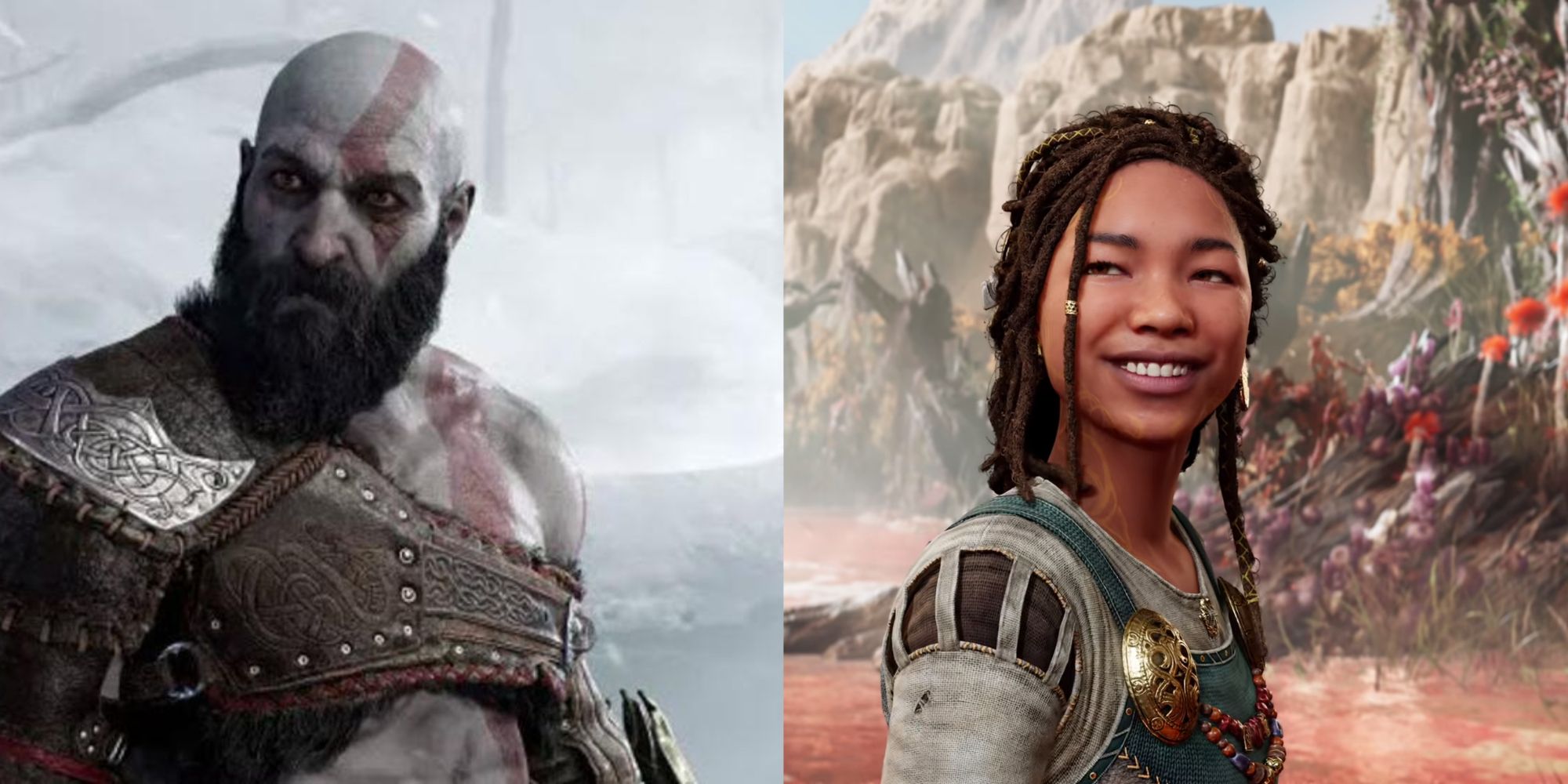Spoiler alert: This article spoils parts of God of War Ragnarök.Fans can finally play God of War Ragnarök following its Nov. 9, 2022 release that came four years after the previous entry in the series gave the franchise a soft reboot. Ragnarök places more emphasis than ever on the quality of its characters, showcasing Kratos’ interactions with different types of personalities.
These range from his well-meaning son Atreus to the intelligent and calculating Odin. A great way to understand these characters’ traits and mannerisms is through Harry Potter’s house system. The Sorting Hat considers attributes such as bravery, intelligence, faithfulness, and cunning to be associated with Gryffindor, Ravenclaw, Hufflepuff and Slytherin. Each of these qualities exist in varying degrees among Kratos and the characters he came across in the Nordic realms.
Odin: Slytherin
.jpg)
Odin’s attitude has brought about several memes from fans reacting to God Of War Ragnarök, as he behaved like an entitled brat along the lines of Draco Malfoy. Slytherins can be big-headed when they have all the tools needed to be more talented than others, which is how Odin behaved.
The All-father embodied Slytherins’ cunning by manipulating Kratos and Atreus throughout the game, while the house’s self-serving traits were evident in him throughout. Power hungry Slytherins are capable of making the worst decisions and Odin certainly did when he killed his own son.
Brok And Sindri: Gryffindor
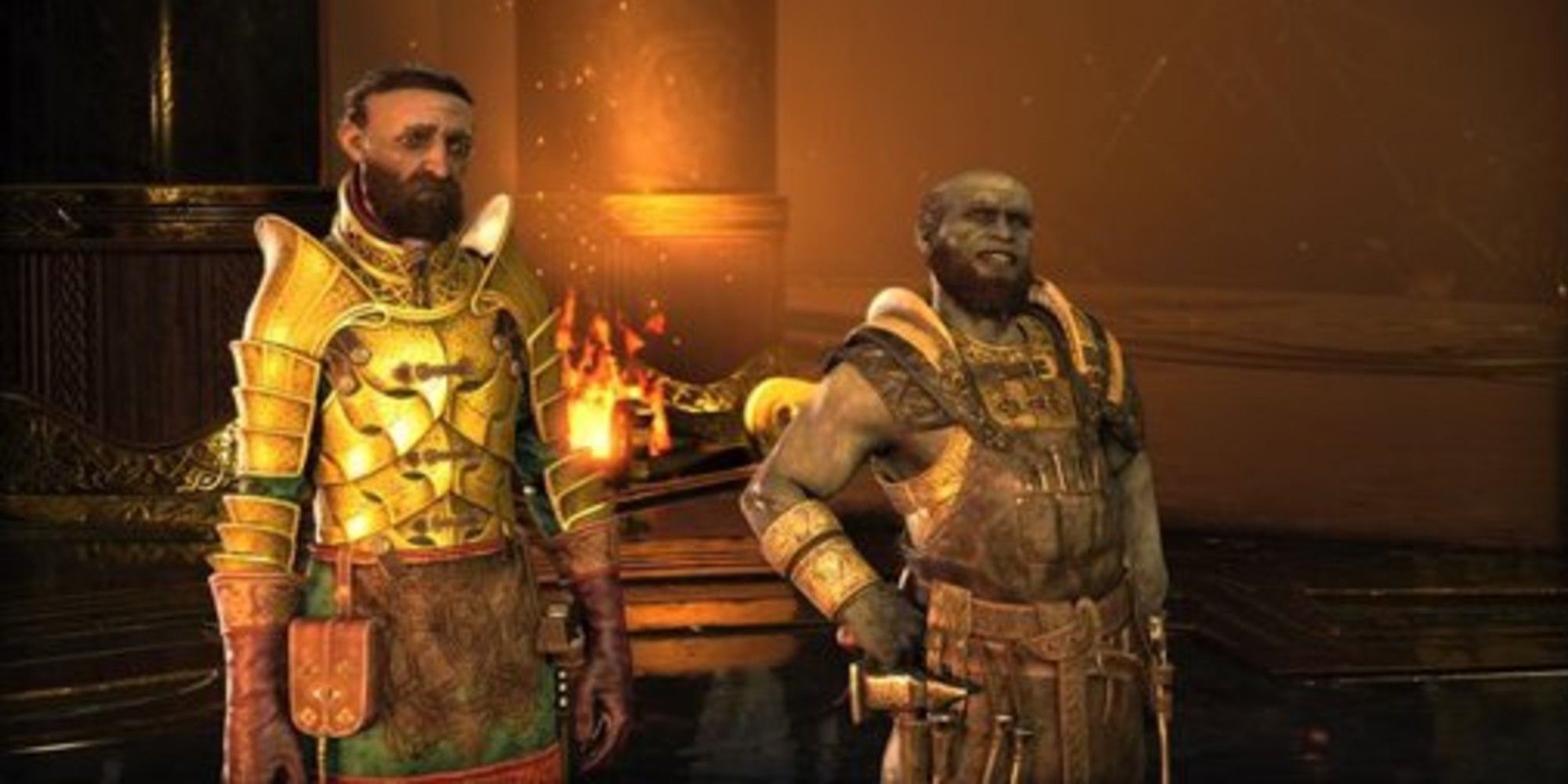
Brok and Sindri were steadfast in their loyalty to Kratos and Atreus but also made decisions based on their emotions. Gryffindors are known to place absolute faith in their friends and to stand by them with fierce demeanors. People from the house are also known to lash out when they’re angry, which is how the brothers behaved.
Sindri denounced his relationship with Kratos and Atreus after Brok’s death, tying into how Gryffindors find it difficult to cope with their heightened emotions. Gryffindors nevertheless remain brave throughout their experiences, with Brok perishing after another one of his fiery displays of attitude.
Thor: Gryffindor
.jpg)
Gryffindors are more likely to have a chip on their shoulders because of their need to prove themselves. Thor developed his issues due to the way Odin treated him, becoming resentful while also abiding by Odin’s orders out of a latent need for approval.
Gryffindors are very devoted to their families, with Thor shown to be this way when he voiced his anger at his sons’ deaths at Kratos and Atreus’ hands. It takes something monumental for Gryffindors to turn their back on their loved ones and Thor’s decision to turn Odin down as his final act was treated in such a way.
Atreus: Hufflepuff

Classic depictions of Loki have always made him out to be self-serving and duplicitous, but Atreus has been quite the opposite. He’s displayed Hufflepuff characteristics like being humble, accustoming, and wanting to give people a second chance.
Atreus was so empathetic that he even thought that Odin might come to repent his actions, which aligns with Hufflepuff personalities wanting to find the best in every person. People from this house can be prone to manipulation, with Atreus falling prey to Odin’s during the game.
Heimdall: Slytherin
.jpg)
Heimdall would have fit well in the Greek mythology arc of God of War since he behaved a whole lot like Hermes. Heimdall’s sly attitude and tendency to think big of himself were similar to Slytherins’ behavior, as people from this house can be boastful when they feel they know more than others.
Slytherins might place their own safety above others, but they also won’t concede even in their last moments. Heimdall had this attitude when he was about to be slain, still putting on the smarmy mannerisms he had during the story to go out staying true to his better-than-you personality.
Thrúd: Hufflepuff

Thrúd is an interesting character because she showed traits of intelligence, humility, and fierceness that can be associated with Ravenclaw, Hufflepuff, and Gryffindor. But the character was mainly hoping for peace, which is what Hufflepuffs want more than the other houses.
Hufflepuffs tend to be followers rather than leaders, with Thrúd proving herself to be a valuable ally to Atreus but never quite having her own plans. Hufflepuffs can be surprisingly perceptive when it comes to love and friendship, so Thrúd’s talk with Thor where she asked him to get out of his doldrums were in line with people from the house.
Freya: Slytherin
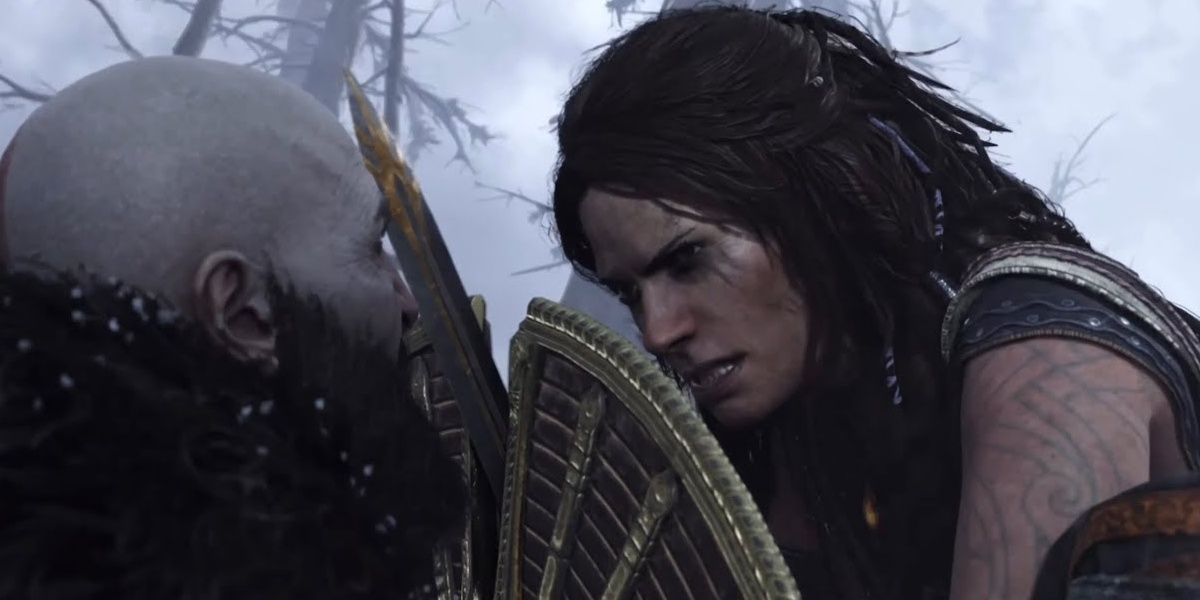
Focusing on characterization is why God of War Ragnarök is now among the best games in the series, with Freya getting quite a lot of it. Her association with Odin was revealed in full here, along with Freya moving on from her initial wish to do harm to Kratos and Atreus.
Slytherins might be known for their self-preservation, but they also deeply love the people they feel a kinship toward. Freya’s vendetta against Kratos was primarily out of love for her son, tying into Slytherins’ tendency to be devoted toward select individuals. Those from this house who do step up to fight for more than themselves give it their all, as seen when Freya aided the heroes up until the end.
Mimir: Ravenclaw
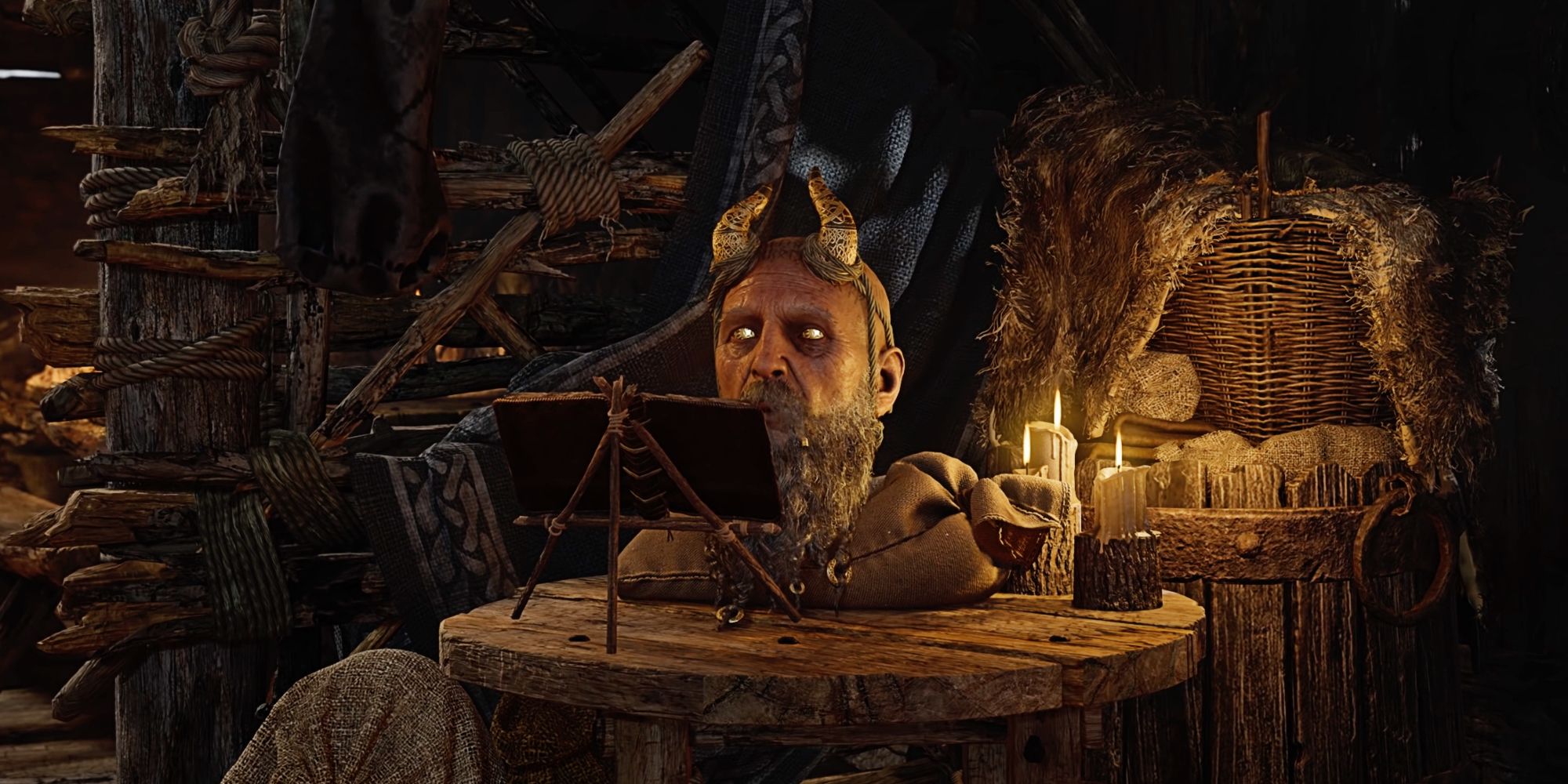
Ravenclaws are both studious and think out of the box whereas others don’t tend to. Mimir’s vast knowledge and enthusiasm to learn further make him an easy inclusion for Ravenclaw house. He’s also the least likely to be emotional with his decisions.
Ravenclaws generally have the ability to set aside their feelings for pressing matters at hand, with Mimir constantly advising Kratos to do the same. Ravenclaws can keep a cool head in tight situations, which is how Mimir behaved whenever he came across the gods of the Nine Realms.
Angrboda: Ravenclaw
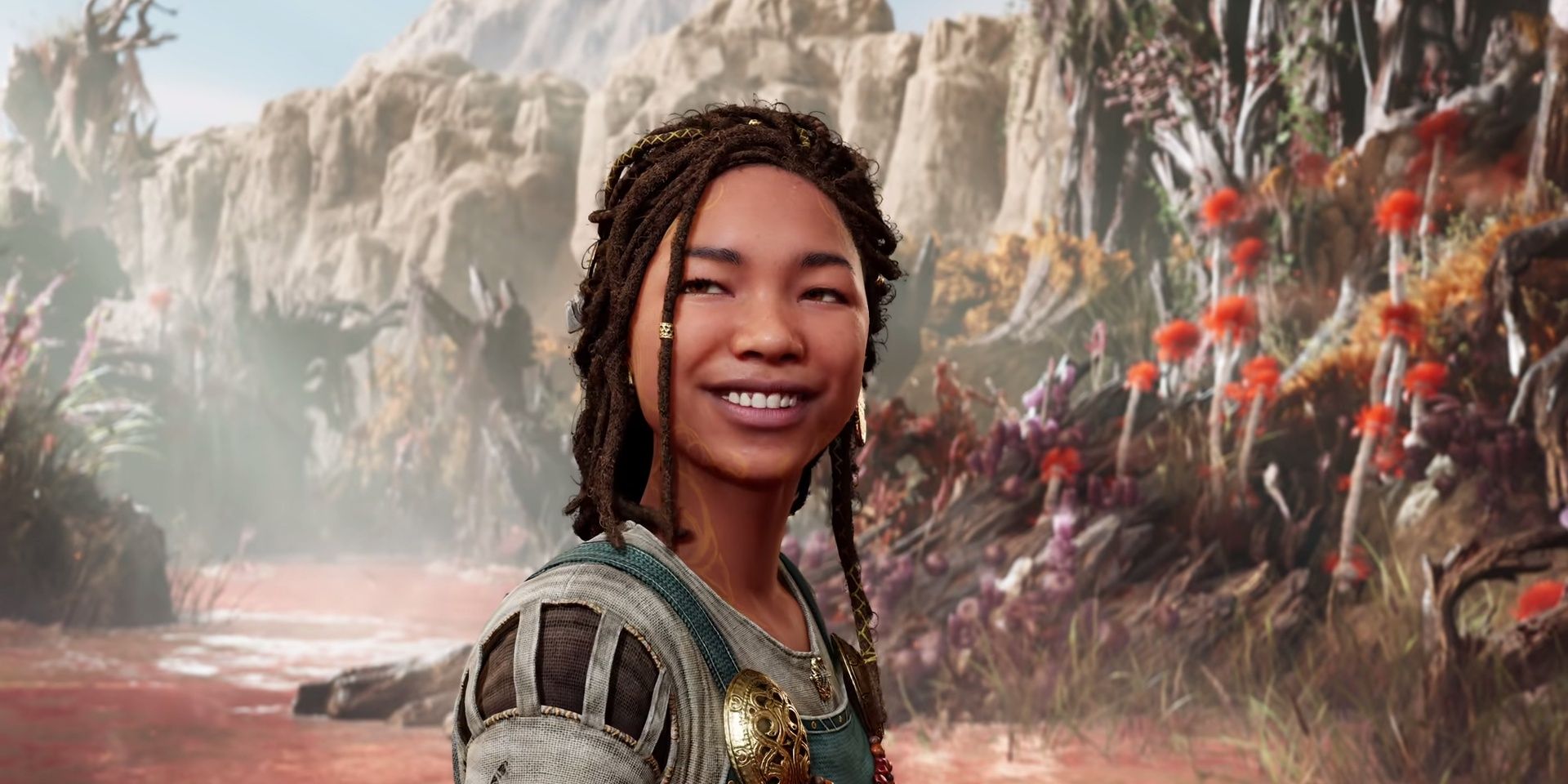
Angrboda was something like Luna Lovegood was in Harry Potter, with her tendency to trail off in her thoughts and to have a rather innocent disposition. Ravenclaws who are creative thinkers show off such character traits since they don’t bother with the usual small talk.
Angrboda had the habit of speaking in circles, yet she would also make her point each time. She showed off the Ravenclaw ability of perception when she deciphered how Kratos and Atreus’ fate played out in the end, along with providing wise pieces of wisdom to the latter.
Kratos: Gryffindor
.jpg)
While there were many wise quotes from Kratos in God of War Ragnarök, he was mainly shown to be seeking redemption. Gryffindors are the ones who stress over this aspect the most since they tend to carry the burden of their actions more than others.
Kratos still had his past crimes in mind during the story, with the climax offering him the chance to do good and make up for it. Gryffindors would be the first people to jump in on the opportunity to make things right, so Kratos’ intentions of doing so after main story ended goes with how Gryffindors operate.
Source:gamerant.com
